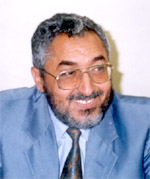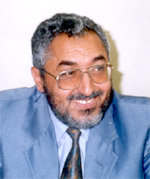
Education in Yemen: Steady Deterioration [Archives:2001/32/Law & Diplomacy]
August 6 2001

Regarding the current cooperation between the different opposition parties Mr. M. Qahtan declared that they were ready to coordinate with virtually anyone for the sake of consolidating and reinforcing the country’s experiment with democracy and preventing the mockery or disparaging of the system. On the integration of the scientific institutions and the Islah party attitude, Qahtan said that the former belonged to the government while the latter held views diametrically opposed to it. He believes that although this has in general been quite an instructing experience, the political process in matters of education was flawed, and that the situation of the education system was progressively deteriorating. ” I’d like to tell you that if you read the conference’s paper on this issue you will see that it discusses an educational vision which is opposed by 90% of the electorate. The conference’s paper has inspired all kinds of deceptive and unacceptable propaganda. I think the educational issue has to be tackled seriously and a national conference has to be held by specialist educationalists who are free of the ideological bulwark of the ruling party. If you come and see who constitutes the scientific institute, you will notice that around 50% of its cadre belongs to the PGC.”
In relation to the directives issued by the Ministry of Education on preventing a number of activities, Mr Qahtan said that the authorities have became very annoyed at activities like camping, demonstrations and the holding of festivals. He added that the Yemeni people have every right to establish summer camps, since these in no way violate the law. Preventing such activities is, however, a violation of the law. Mr. Qahtan clarified that there was a rumor that the US was involved in trying to have scientific institutes abolished, and also said that internal matters like these were frequently ascribed to either regional or international parties.
Mr Qahtan said that it was extremely difficult for him to talk in this way, since he is an official political representative, and besides which not enough concrete evidence exists to prove his accusation. However, he did seem able to claim that the US fears such accusations.
At length, Mr Qahtan hopes that Yemen’s relations with neighboring states like Saudi Arabia and the Gulf in particular, and the USA and European nations in general, will eventually flourish. “I think improving such relations will in the future reflect positively on both the people and country as a whole. Cool relations with foreign states has a negative impact on us”. Regarding religious parties, and more specifically the establishment of a new Salafi-oriented party in the Yemeni political arena, he answered in the negative. Mr. Qahtan was asked about the diversity of political doctrines and how Yemen can learn from them. He also thinks that the problems facing the country are extremely complex, some being of more urgent importance than others. He touched on the issue of the rapid progress of technology and the many transitions the world was going through.
Mr Qahtan added that it was time to discuss the administration of schools in Japan and the administrative experience in the US. He also stressed the need to avoid international conflicts, since these always have the same inevitable consequences.
People in Yemen desperately need to make a decent living, the unemployed need job opportunities, both the national and individual incomes need to improve, and there is also a need to begin thinking about how to find new mechanisms for investing in and rehabilitating the Yemeni workforce. On the deterioration of educational, the economy, and the internal security situation, Mr. Qahtan approached the subject from two angles: the one being optimistic, the other pessimistic. From an optimistic standpoint, he emphasized the need to adhere to the path of democracy, both within the various social classes and the political forces of the country. In this way Yemen may to some extent emerge from its current crisis.
From the pessimistic point of view, he went on to claim that if the situation continued even greater complications would arise, adding insult to injury. In response to the hostility on the part of internal and external parties for belonging to Islamic movements, he said that what had been published by the PGC’s press was concerned over nothing. The Islah Party has its own perspective and has become known to all. At last he was asked about whether that party had held talks with foreign representatives as other parties had done, but answered in the negative. In conclusion, Mr. Mohammed M. Qahtan reiterated his appeal to all who support and believe in democracy in Yemen to work together hand in hand to achieve their goal.
——
[archive-e:32-v:2001-y:2001-d:2001-08-06-p:./2001/iss32/l&d.htm]


